Speakers
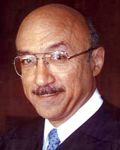 |
Judge Harry
Edwards Harry T. Edwards, co-chair of the Forensic Sciences
Committee of the National Academy of Sciences, was appointed to the
United States Court of Appeals for the District of Columbia Circuit
by President Carter in 1980. He served as Chief Judge from September
15, 1994 until July 16, 2001, and he took Senior status on November
3, 2005. He has continued as an active member of the court since taking
senior status. Before joining the bench, Judge Edwards was a tenured
Professor of Law at the University of Michigan (1970-75 and 1977-80)
and at Harvard Law School (1975-77). He practiced law in Chicago with
Seyfarth, Shaw, Fairweather & Geraldson from 1965 to 1970. |
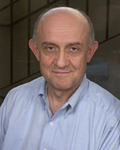 |
Constantine Gatsonis,
Ph.D. Constantine Gatsonis, co-chair of the Forensic Sciences Committee
of the National Academy of Sciences, is Professor of Medical Science
(Biostatistics) and founding Director of the Center for Statistical
Sciences at Brown University. Dr. Gatsonis is a leading authority
on the evaluation of diagnostic and screening tests and has extensive
involvement in methodologic research in medical technology assessment
and in health services and outcomes research. He is Group Statistician
of the American College of Radiology Imaging Network (ACRIN), a NCI
funded collaborative group conducting multi-center studies of diagnostic
imaging and image-guided therapy for cancer. In his ACRIN work, Dr
Gatsonis is chief statistician of the Digital Mammography Imaging
Screening Trial (DMIST) and chief statistician for ACRIN’s arm
of the National Lung Screening Trial (NLST). |
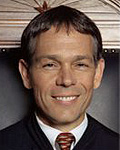 |
W. Scott Bales Scott Bales joined the Arizona Supreme Court in 2005. Before his appointment, he had practiced law in Arizona since 1985 as both a private and public lawyer. From 2001-2005, he worked at Lewis and Roca LLP, where his practice focused on appellate and complex litigation. As Arizona’s Solicitor General from 1999-2001, he handled major appeals in state and federal court, oversaw the enforcement of Arizona election laws, and supervised the preparation of legal opinions on issues concerning state government. Justice Bales also was a federal prosecutor in the U.S. Attorney’s Office in Phoenix, a Deputy Assistant Attorney General for the U.S. Department of Justice’s Office of Policy Development, and a Special Investigative Counsel for the Justice Department’s Inspector General. He clerked for Justice Sandra Day O’Connor on the U.S. Supreme Court and Judge Joseph T. Sneed III on the 9th U.S. Circuit Court of Appeals. After graduating from Michigan State University with degrees in history and economics, he received a master’s degree in economics and his law degree from Harvard. Justice Bales has taught several courses as an adjunct professor at the law schools at the Sandra Day O’Connor College of Law at Arizona State University and at the University of Arizona. His other prior legal activities include serving on the Arizona State Bar’s Access to Justice Task Force, the Board of Directors for the Arizona Foundation for Legal Services and Education, and the State Bar’s Committee on the Rules of Professional Conduct. |
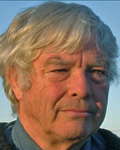 |
Thomas L. Bohan, J.D.,
Ph.D. Thomas L. Bohan began his research career as an undergraduate at the University of Chicago, studying cloud physics summers on the Greenland Ice Cap. In graduate school at the University of Illinois-Urbana, and later as a faculty member at several academic institutions in the United States and abroad, he built equipment that permitted him to study electric fields in ionic crystals and heme proteins at temperatures near absolute zero. After becoming involved in forensic investigations as a physics faculty member during the 1970s, he decided to concentrate more directly on forensic science. Believing that a personal prerequisite for that move was an education in law, he attended law school, receiving his J.D. degree in 1980. Although his primary interest was forensic science, he pursued a legal career as well and was admitted to practice before various state and federal trial and appellate courts including the U.S. Supreme Court, and the U.S. Patent and Trademark Office. As a forensic physicist, he has consulted with law enforcement agencies, private attorneys, and others. Over the past 20 years, he has spoken before audiences throughout the world on subjects ranging from applied physics to applied patent law and, commencing in 1995, on the developing rules of scientific evidence. In connection with the latter, he has published several review papers on the Daubert and Frye standards. A Board member of the American Academy of Forensic Sciences for many years, Bohan was chosen as President-Elect of that organization in early 2008, to assume its presidency in February 2009. He is on the editorial board of the Journal of Forensic Sciences, a member of the Forensic Specialties Accreditation Board, and the contributing editor of the two-volume set, Forensic Accident Investigation. Scheduled for a February 2009 launch, his latest book, Crashes And Collapses, is aimed at laypersons and recounts elements of law and science and law-science associated with a variety of his forensic investigations over the past 30-plus years. |
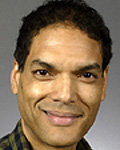 |
Scott Brewer, J.D., Ph.D. Scott Brewer joined the Harvard Law School faculty in 1991, after having taught undergraduate philosophy courses at Harvard, Yale, and Dartmouth, and after clerking for Judge Harry T. Edwards and Justice Thurgood Marshall. He received a law degree and master’s degree in philosophy from Yale and a Ph.D in philosophy from Harvard. His teaching and scholarship focus on the law of Contracts, courses related to Evidence (such as "Evidence in Law, Philosophy, and Science," "Expert Testimony & Legal Decision Making" and "Skepticism and Legal Theory"), and a variety of courses in Jurisprudence. |
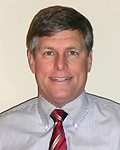 |
Kent E. Cattani, J.D. Kent E. Cattani is Chief Counsel of the Criminal Appeals/Capital Litigation Section at the Arizona Attorney General’s Office. He obtained a degree from the University of California, Berkeley, School of Law in 1986 and has worked at the Attorney General's Office since 1991. Cattani has represented the State of Arizona in criminal cases at every stage of the appellate and post-conviction process in state and federal court, and he has provided testimony to U.S. Senate and House of Representatives regarding federal habeas and capital litigation issues. He is a frequent lecturer on criminal law and capital litigation issues. Cattani chaired the Attorney General’s DNA Task Force from October 2005 until January 2008, and he serves on the statewide Forensic Science Advisory Committee formed in response to recommendations from the Task Force. He also serves on the Board of Directors of the National Association of Government Attorneys in Capital Litigation, the Attorney General’s Opinion Review and Ethics Committees, the Arizona Prosecuting Attorneys Association Ethics Committee, the Arizona Supreme Court Capital Case Oversight Committee, and the Arizona State Bar Jury Instructions Committee. Among other honors, in January 2008, Cattani was named the Attorney General’s Prosecutor of the Year. |
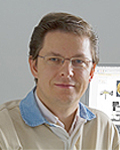 |
Christophe Champod, Ph.D. Christophe Champod received his M.Sc. and Ph.D. (summa cum laude) both in Forensic Science, from the University of Lausanne, in 1990 and 1995 respectively. He remained in academia until holding the position of assistant professor in forensic science. From 1999 to 2003, he led the Interpretation Research Group of the Forensic Science Service (UK), before taking a professorship position at the School of Criminal Sciences (ESC) / Institute of Forensic Science (IPS) of the University of Lausanne. He is in charge of education and research on identification methods (detection and identification). He is member of the International Association for Identification and was elected in 2004 member of the FBI-sponsored SWGFAST. His research is devoted to the statistical evaluation of forensic identification techniques. The value of fingerprint evidence is at the core of his interests. |
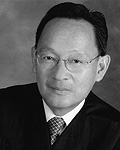 |
Justice Ming W. Chin Ming W. Chin was appointed to the Supreme Court of California in
1996 by Gov. Pete Wilson. Justice Chin previously served as the presiding
justice and an associate justice of the First District Court of Appeal,
Division Three, in San Francisco and as an Alameda County Superior
Court judge. Before his appointment to the bench, he was a partner
in an Oakland law firm, where he specialized in business and commercial
litigation. |
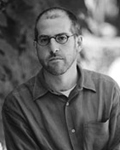 |
Simon Cole, Ph.D. Simon A. Cole is Associate Professor of Criminology, Law and Society at the University of California, Irvine. He received his A.B. in History from Princeton University and his Ph.D. in Science & Technology Studies from Cornell University. He specializes in the historical and sociological study of the interaction between science, technology, law, and criminal justice. Cole is the author of Suspect Identities: A History of Fingerprinting and Criminal Identification (Harvard University Press, 2001), which was awarded the 2003 Rachel Carson Prize by the Society for Social Studies of Science, and more than 18 scholarly articles and book chapters about the scientific validity of fingerprint evidence and its use in the courts. He is a recipient of a CAREER Award (2004-2009), the National Science Foundation’s most prestigious award for new faculty members, and he is a member of the American Judicature Society Commission on Forensic Science and Public Policy. He is particularly interested in the sociology of forensic science and the use of forensic evidence in law. |
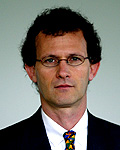 |
Itiel Dror, Ph.D. Itiel Dror holds a Ph.D. from Harvard University. Dror’s research (cognitiveconsultantsinternational.com/dror.htm) focuses on understanding cognitive information processing and mechanisms underlying perception, judgment, and decision making. Much of his work is purely theoretical and academic, for example examining and developing models of the role of expertise and bias in decision making. In addition to basic scientific research, Dror investigates these issues in applied research within real world environments. This work includes expert decision making in a variety of domains, such as military (e.g., he has worked with the US Air Force for over 15 years), medical, financial, and forensic domains (see: cognitiveconsultantsinternational.com/biometric.htm). |
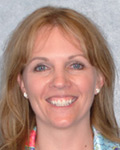 |
Debra Figarelli
|
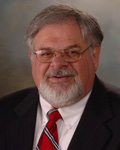 |
Barry A. J. Fisher Barry A.J. Fisher began his career in forensic science in 1969 with the Los Angeles County Sheriff’s Department, where he has been the Crime Laboratory Director since 1987. Fisher’s current interests concern the interrelationship between forensic science and the law, along with public policy issues concerning the timely delivery of quality forensic services to the justice system. He is a Distinguished Fellow and past-president of the American Academy of Forensic Sciences, and past-president of the International Association of Forensic Sciences, and the American Society of Crime Laboratory Directors. Fisher was chairman of the American Society of Crime Laboratory Directors’ Laboratory Accreditation Board, served as a member of the American Bar Association’s Criminal Justice Section’s Ad Hoc Committee to Ensure the Integrity of the Criminal Process, and represents the American Academy of Forensic Sciences on the Consortium of Forensic Science Organizations. He is vice-chair of the California Attorney General’s Crime Laboratory Task Force, and serves on the editorial boards of the Journal of Forensic Sciences, Journal of Forensic Identification, Forensic Science, Medicine and Pathology, Forensic Science Policy and Management and the McGraw-Hill Encyclopedia of Science and Technology. Fisher, who has a bachelor’s degree in chemistry from the City College of New York, a master’s in organic chemistry from Purdue University, and an M.B.A. from California State University, Northridge, is the author of Techniques of Crime Scene Investigation. |
 |
Brandon L. Garrett, J.D. Brandon L. Garrett is an associate professor at the University of Virginia School of Law. He joined the law faculty in 2005. Garrett’s areas of research and publication include criminal procedure, wrongful convictions, habeas corpus, corporate crime, civil rights, and civil procedure. While a law student, he was an articles editor of the Columbia Law Review and a Kent Scholar. After graduating he clerked for the Honorable Pierre N. Leval of the 2nd U.S. Circuit Court of Appeals. He then worked as an associate in New York City at Cochran, Neufeld & Scheck LLP, litigating wrongful conviction, DNA exoneration, and police brutality cases. |
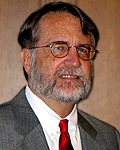 |
Paul C. Giannelli, J.D.,
LL.M., M.S. Paul C. Giannelli is the Albert J. Weatherhead III & Richard
W. Weatherhead Professor of Law at Case Western Reserve University.
He received his J.D. degree from the University of Virginia, where
he served as Articles Editor of the Virginia Law Review.
His other degrees include a LL.M. from the University of Virginia
and a M.S. in Forensic Science from George Washington University.
After law school, he served as both a prosecutor and defense counsel
in the military. Giannelli has written extensively in the field of
evidence and criminal procedure, especially on the topic of scientific
evidence. He has authored or co-authored 10 books, including Scientific
Evidence (4th ed. 2007) and has published articles in the Columbia,
Virginia, Cornell, Vanderbilt, Fordham, North Carolina, Wisconsin,
Ohio State, and Hastings law reviews, as well as in the Journal
of Criminal Law & Criminology, the Criminal Law Bulletin,
and the American Criminal Law Review. In addition, his work
has appeared in interdisciplinary journals, such as the Journal
of Law, Medicine & Ethics, Issues in Science and Technology
(National Academies), International Journal of Clinical &
Experimental Hypnosis,the New Biologist, and the Journal
of Forensic Sciences. Giannelli’s work has been cited in
hundreds of court opinions and legal articles, including decisions
of the U.S. Supreme Court: Clark v. Arizona (2006) Blakely v. Washington
(2004); United States v. Scheffer (1998); Daubert v. Merrell Dow Pharm.,
Inc. (1993); Hudson v. Palmer (1984); and Barefoot v. Estelle (1983).
He served as Reporter for the American Bar Association Criminal Justice
Standards on DNA Evidence and co-chair of the ABA Ad Hoc Committee
on Innocence. |
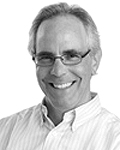 |
Samuel Gross, J.D. Samuel Gross is a Professor of Law at the University of Michigan, where teaches evidence, criminal procedure, and courses on the use of the social sciences in law. He graduated from Columbia College in 1968 and earned a J.D. from the University of California at Berkeley in 1973. Before going into teaching he was a criminal defense attorney in San Francisco, and worked with the United Farm Workers Union in California and the Wounded Knee Legal Defense Committee in Nebraska and South Dakota. He has litigated test cases on jury selection in capital trials, racial discrimination in the use of the death penalty and the constitutionality of executing defendants in the face of a substantial known risk of factual innocence. Professor Gross has published works on eyewitness identification, evidence law, the death penalty and the use of expert witnesses. For the past several years he has focused on false convictions and exonerations. He is the lead author of a 2005 study of exonerations in the United States, and, on behalf of the NAACP Legal Defense and Educational Fund, he coordinated an investigation that uncovered convincing evidence that Larry Griffin, who was executed in Missouri in 1995, was innocent. |
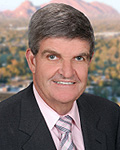 |
Larry Hammond, J.D. Larry Hammond is one of the founders of the Arizona Justice Project and has served as its Chair since its creation 11 years ago. He is a practicing criminal defense lawyer with the Phoenix firm of Osborn Maledon and is a frequent contributor to the Adjunct Faculty at ASU and at the University of Arizona. He will be returning to Arizona this Spring after spending the Fall teaching a class on forensic science failures and reforms at the Elon University School of Law in North Carolina. |
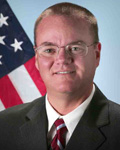 |
Chris Hassell, Ph.D. David Christian (“Chris”) Hassell was named Director of the FBI Laboratory in July 2008. Hassell came to the Bureau from the Oklahoma State University Multispectral Laboratories (UML), where he led Research, Development, Testing and Evaluation. He previously served as Assistant Vice President for Science and Technology at Applied Marine Technologies Inc., and led programs in analytical chemistry, instrumentation development, and forensics and attribution for weapons of mass destruction at Los Alamos National Laboratory. During this time, he also served as a subject-matter expert for chemical/biological warfare on the Iraq Survey Group in Baghdad. Earlier in his career, Hassell was a Senior Research Chemist for DuPont, developing online analytical instrumentation for chemical and bioprocess facilities for both research and manufacturing. He has a Ph.D. in analytical chemistry from the University of Texas at Austin and a Bachelor of Science degree in chemistry from Brigham Young University.
|
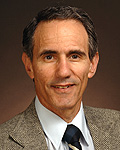 |
David H. Kaye, J.D. An internationally recognized expert on scientific evidence and statistics in law, David Kaye has taught evidence, law and science, constitutional law, legal philosophy and international human rights law. He is the author of 10 books and more than 100 articles and reviews in journals of law, philosophy, medicine, genetics and statistics. Professor Kaye has taught at universities in America, England and
China, including Cornell, Duke, the Johns Hopkins-Nanjing Center,
and the University of Virginia. Prior to joining the College in 1976, Professor Kaye clerked on the U.S. Circuit Court of Appeals for the Ninth Circuit, practiced law in Portland, Ore., and was an assistant special prosecutor on the Watergate Special Prosecution Force. For recreation, he enjoys Aikido, ski mountaineering and studying Mandarin. |
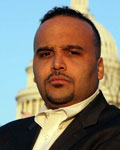 |
Hannibal Kemerer. J.D. In his capacity on the U.S. Senate Committee on the Judiciary, Hannibal Kemerer advises U.S. Sen. Arlen Specter (R-PA) on crime, intelligence and terrorism matters and conducts oversight investigations of the Department of Justice and its affiliated agencies. Kemerer participated in the 2007-2008 investigation into forced resignations of nine U.S. Attorneys. Prior to joining the Judiciary Committee, he was in-house assistant general counsel at the National Association for the Advancement of Colored People, where he maintained a nationwide civil-rights litigation portfolio with diverse cases. Kemerer also is a former associate at the Hermina Law Group where he litigated complex, multiparty employment cases in federal and state court. He received his B.A. from Arizona State University and his J.D. from the George Washington University Law School, and he is admitted to practice in Maryland, before the U.S. District Court for the District of Maryland and the 4th U.S. Circuit Court of Appeals. Kemerer received the NAACP Office of General Counsel’s “Staff Lawyer of the Year Award” in 2004. |
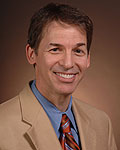 |
Jay Koehler, Ph.D. Jay Koehler studies quantitative reasoning in the law, behavioral decision theory, and the psychology of investment. He holds the first, full joint faculty appointment in the law and business schools at ASU, and currently teaches the seminar, Probability & Science in Court, at the College of Law, and a Business Statistics course at the business school. Prior to joining the College in 2007, Professor Koehler was a University
Distinguished Teaching Professor in the McCombs School of Business
at the University of Texas at Austin, where he was named the Outstanding
Business Honors Program Professor on four occasions. Professor Koehler
was a Searle Visiting Scholar at Northwestern University School of
Law, a visiting scholar in the psychology departments at both Harvard
University (in social cognition) and Stanford University and a visiting
scholar at Stanford Law School (in psychology and law). He has conducted
extensive research in the area of how jurors, attorneys and experts
think about scientific and statistical evidence, and how investors
make financial decision. |
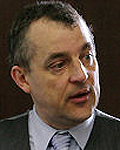 |
Roger Koppl, Ph.D. Roger Koppl is the Director of the Institute for Forensic Science Administration of Fairleigh Dickinson University, where he is also a Professor of Economics and Finance. He has served on the faculty of the Copenhagen Business School, Auburn University, and Auburn University at Montgomery. He has held visiting positions at George Mason University, New York University, and the Max Planck Institute of Economics. Koppl is the editor of Advances in Austrian Economics and the book review editor of Journal of Economic Behavior and Organization. He is a Senior Researcher at the Pennsylvania Laboratory for Experimental Evolutionary Psychology (PLEEP) and FDU's Florham Laboratory for Experimental Social Science. Koppl conducts research in forensic science administration, which studies how error rates in forensic science are affected by institutional and organizational structures. |
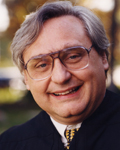 |
Chief Judge Alex Kozinski Alex Kozinski was appointed to the 9th U.S. Circuit Court of Appeals
in 1985 and became Chief Judge in 2007. Judge Kozinski previously
served as Chief Judge of the U.S. Claims Court, Special Counsel to
the Merit Systems Protection Board, Assistant Counsel in the Office
of Counsel to the President, and Deputy Legal Counsel, Office of President-Elect
Reagan, and was an attorney at Covington & Burling and Forry Golbert
Singer & Gelles. Judge Kozinki also clerked for U.S. Supreme Court
Justice Warren E. Burger and for U.S. Supreme Court Justice Anthony
M. Kennedy, when Justice Kennedy was a judge on the 9th U.S. Circuit
Court of Appeals. Judge Kozinski received a J.D. degree from UCLA
School of Law in 1975. |
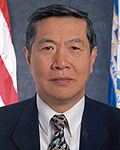
|
Henry Lee, Ph.D. Henry Lee is the Chief Emeritus for the Connecticut Department of Public Safety, Division of Scientific Services, and was the Commissioner of Public Safety for the State of Connecticut from 1998 to 2000. Lee served as Chief Criminalist for the State of Connecticut from 1979 to 2000, and was a driving force in establishing a modern Major Crime Squad concept and State Police Forensic Science Laboratory in Connecticut. In 1975, he joined the University of New Haven, where he created the school’s Forensic Sciences program, and he also has taught as a professor at more than a dozen universities, law schools and medical schools. Lee still lectures throughout the country and the world to police, Universities and civic organizations, and has authored hundreds of articles in professional journals and co-authored more than 30 books, covering the areas, such as DNA, Fingerprints, Trace Evidence, Crime Scene Investigation and Crime scene reconstruction. Lee has been the recipient of numerous medals and awards, including the 1996 Medal of Justice from the Justice Foundation, and the 1998 Lifetime Achievement Award from the Science and Engineer Association. He also received the Distinguished Criminalist Award from the American Academy of Forensic Sciences, and the J. Donero Award from the International Association of Identification, and in 1992 was elected a distinguished Fellow of the AAFS. |
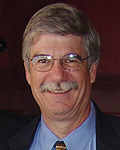 |
John Lentini John Lentini began his career in forensic science with the Georgia Bureau of Investigation Crime Laboratory in 1974. He joined the private sector in 1977, and for 28 years he was the lead fire investigator for Applied Technical Services of Marietta, Ga, where he conducted more than 2,000 fire scene inspections and more than 20,000 fire debris analyses. He is one of a handful of people certified to conduct both fire scene investigations and fire debris analysis, and has appeared as an expert witness on more than 200 occasions. Lentini is an active proponent of standards for fire and other forensic investigations, and has made many presentations on the proper use of science in fire investigations. He is a member of the National Fire Protection Association Technical Committee on Fire Investigations, and served for six years as the Chairman of ASTM Committee E30 on Forensic Sciences. His book, Scientific Protocols for Fire Investigation, was published in 2006 by CRC Press. Lentini started his own company in 2006, and is now an independent consultant living in the Florida Keys and doing business as Scientific Fire Analysis. |
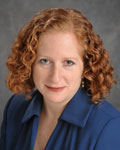 |
Jennifer Mnookin, J.D., Ph.D. Jennifer Mnookin researches, writes and teaches primarily in the area of evidence, with a particular focus on expert and scientific evidence. Recent articles have focused on such topics as Daubert and the appropriate standards for expert evidence; examinations of categories of forensic science including latent fingerprint examination and handwriting identification; the intersection of expert evidence and the Confrontation Clause; documentary films and legal evidence; and the history of expert evidence. Professor Mnookin is a co-author of The New Wigmore (Expert Evidence), with David Kaye and David Bernstein, and she currently is writing a book on the history of instruments and machines as legal evidence, from the photograph to the polygraph. She is on the board of several academic journals, has served as a member of the National Academy of Science’s Committee on Daubert Standards and as Chair of the Evidence Section of the American Association of Law Schools. She has given talks at numerous academic conferences, judicial conferences, and to the public, and has taught a course in scientific evidence to members of the state and federal judiciary as a member of the faculty of Virginia’s Graduate Program for Judges. Before joining the UCLA faculty in 2005, Professor Mnookin was a professor and Barron F. Black Research Professor at the University of Virginia School of Law, and a Visiting Professor of Law at Harvard Law School. |
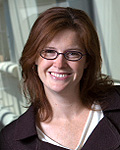 |
Erin Murphy, J.D. Erin Murphy is an assistant professor of law at UC Berkeley School of Law. Her research focuses on questions related to new technologies and state power in the criminal justice context. Her particular interests include forensic DNA typing, biometric scanning, electronic tracking and functional MRI imaging. Her most recent work, “Manufacturing Crime: Process, Pretext and Criminal Justice,” is forthcoming in the Georgetown Law Journal. Her article “Paradigms of Restraint,” published by the Duke Law Journal, won the AALS Criminal Justice Section 2008 award for best paper by a junior scholar. Other representative works include “The New Forensics: Criminal Justice, False Certainty and the Second Generation of Scientific Evidence” in the California Law Journal and “Inferences, Arguments, and Second Generation Forensic Evidence” in the Hastings Law Journal. Murphy teaches courses related to criminal law, criminal procedure and evidence. She is a graduate of the Harvard Law School, where she served as notes editor of the Harvard Law Review, and a former clerk to the Honorable Merrick B. Garland of the U.S. Court of Appeals for the D.C. Circuit. Prior to joining the Berkeley faculty, she spent five years as an attorney with the Public Defender Service (PDS) for the District of Columbia. |
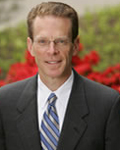 |
Geoffrey Mearns, J.D.
Geoffrey Mearns is the 13th dean in the 111-year history of the Cleveland-Marshall College of Law at Cleveland State University. Prior to his appointment in 2005, Dean Mearns practiced law for more than 15 years. From 1998 to 2005, his private practice focused on federal criminal investigations and prosecutions and complex commercial litigation. Prior to commencing private practice in 1998, Dean Mearns had a distinguished nine-year career as a prosecutor with the U.S. Department of Justice, where he was an Assistant U.S. Attorney for the Eastern District of New York and Chief of the Organized Crime and Racketeering Section. He also was the First Assistant U.S. Attorney for the Eastern District of North Carolina. From 1997 to 1998, as Special Assistant to the U.S. Attorney General, Dean Mearns participated in the prosecution of Terry Nichols, one of two men convicted for bombing the Oklahoma City Federal Building. Dean Mearns received his undergraduate degree from Yale University in 1981, and his law degree from the University of Virginia in 1987. After graduating from law school, Dean Mearns clerked for the Honorable Boyce F. Martin Jr., of the 6th U.S. Circuit Court of Appeals. |
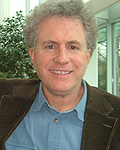 |
Peter Neufeld, J.D. Peter Neufeld co-founded and co-directs The Innocence Project, an independent non- profit affiliated with the Benjamin N. Cardozo School of Law. He is also a partner in the civil rights law firm Cochran Neufeld & Scheck, LLP. Before co-founding the Innocence Project at Cardozo Law School, he taught trial advocacy at Fordham University Law School and was a staff attorney with the Legal Aid Society of New York. For the last decade he has served on the New York State Commission on Forensic Science, with responsibility for regulating all state and local crime laboratories. He has published more than a dozen articles on science and law, and is the co-author, along with Jim Dwyer and Barry Scheck of the book entitled, Actual Innocence: When Justice Goes Wrong And How To Make It Right. A 1972 graduate of the University of Wisconsin, Peter Neufeld received his law degree in 1975 from New York University School of Law. You can read about the Innocence Project at www.innocenceproject.org. |
 |
Joseph L. Peterson Joseph L. Peterson is professor and director of the School of Criminal Justice and Criminalistics at California State University, Los Angeles. Over the past 35 years, Peterson’s research and publications have monitored the evolution of the forensic sciences, documenting its growing potential as well as its shortcomings. His research has focused on the uses and effects of scientific evidence and testimony at key decision points in the judicial process (arrest, charging, determination of guilt or innocence, and sentencing) and found that forensic evidence has a limited effect in deciding guilt or innocence, but major impact at the points of arrest and sentencing. His work has also probed the quality of crime laboratory results via proficiency testing of examiners. Peterson has examined the problems associated with the placement of crime laboratories within law enforcement agencies, including chronic resource shortages, difficulties in maintaining neutrality, and a reluctance to embrace rigorous scientific standards. Peterson’s 2002 and 2005 Census(es) of Publicly Funded Forensic Crime Laboratories for the U.S. Department of Justice’s Bureau of Justice Statistics have documented high caseloads, long backlogs, and severe budgetary and personnel needs. He was funded in 2006 by the National Institute of Justice to study the role and impact of forensic science in the criminal justice process. Peterson received the Distinguished Fellow Award from the American Academy of Forensic Sciences in 2008. |
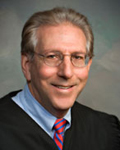 |
Ron Reinstein Ron Reinstein is a judicial consultant for the Arizona Supreme Court and Director of the Court’s Center for Evidence Based Sentencing. He also is an adjunct professor at the Sandra Day O’Connor College of Law. Judge Reinstein serves as a legal advisor and consultant to the Urban Institute on a DNA evidence post-conviction project, and as a consultant to the National Institute of Justice, the National Institute of Corrections, the Center for Effective Public Policy, and the National Forensic Science Technology Center, among others. He chairs the Supreme Court Commission on Victims in the Courts and the Arizona Forensic Science Advisory Committee. Judge Reinstein was a member of the National Commission on the Future of DNA Evidence, of which he chaired the Post-Conviction Issues Committee. He has served as a presenter and on the faculty of numerous judicial and legal education programs on various subjects including DNA evidence, forensic sciences, sentencing issues, capital litigation, victims rights, sex offender management, child sexual abuse, and trial advocacy. Judge Reinstein was appointed to the bench in 1985, and served as the Presiding Criminal Judge from 1990-1998, and the Associate Presiding Judge of the Court from 1998-2000. Prior to his appointment he was a Deputy Maricopa County Attorney from 1974 to 1985. Judge Reinstein received a J.D. from Indiana University School of Law in 1973, and was inducted into the School of Law’s Academy of Law Alumni Fellows in 2002. |
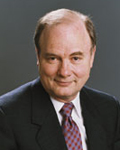 |
Michael Risinger, J.D. D. Michael Risinger is the John J. Gibbons Professor of Law at Seton Hall University School of Law. He holds a B.A. from Yale University, and a J.D. from Harvard Law School. He is a past chair of the Association of American Law Schools Section on Civil Procedure, the immediate past chair of the AALS Section on Evidence, a life member of the American Law Institute, and was for 25 years a member of the New Jersey Supreme Court Committee on Evidence, which was responsible for the current version of the New Jersey Rules of Evidence. He is the author of two chapters in Modern Scientific Evidence (“Handwriting Identification” and “A Proposed Taxonomy of Expertise”) by David L. Faigman, David H. Kaye, Michael J. Saks and Edward K. Cheng, He is also the author of articles on a diverse range of subjects, including many articles on expert evidence issues. |
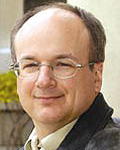 |
Kent Roach, LL.M. Kent Roach is a Professor of Law at the University of Toronto where he holds the Prichard-Wilson Chair in Law and Public Policy. He is a graduate of the University of Toronto and Yale and a former law clerk to Justice Bertha Wilson of the Supreme Court of Canada. He is the author of 7 books, including Constitutional Remedies in Canada (winner of the 1997 Owen Prize for best law book) and (with Robert J. Sharpe) Brian Dickson: A Judge’s Journey (winner of the 2004 J.W. Dafoe Prize for best contribution to the understanding of Canada) and over 120 articles and chapters published throughout the world. Since 1998, Professor Roach has been editor-in-chief of the Criminal Law Quarterly. Professor Roach is the author of both a text and a casebook on criminal law and he wrote a chapter on the criminal process for the Oxford Companion to Legal Scholarship. He has appeared as counsel in the Supreme Court of Canada ten times. He served as Research Director for Ontario’s Inquiry into Pediatric Forensic Pathology from 2007-2008. His current research involves the comparative study of miscarriages of justice. |
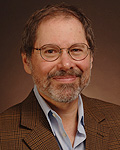 |
Michael J. Saks, Ph.D., M.L.S. Michael J. Saks research focuses on empirical studies of the legal system, especially decision-making; the behavior of the litigation system; and the law's use of science. Professor Saks is the fourth most-cited law-and-social-science scholar in the U.S., and has authored approximately 200 articles and books. Courses he has taught include criminal law, evidence, law and science, property and torts. Professor Saks has served as editor of the journals Law & Human Behavior and Jurimetrics. He has been president of the American Psychology-Law Society and chair of the Section on Law and Social Science of the AALS. For a decade he taught in the University of Virginia Law School's LL.M. program for judges, Duke Law School's "Judging Science" program and at the National Judicial College, and taught law professors at the Georgetown University Law Center, as well as numerous continuing education programs for attorneys, judges, and scientists. Before joining the College in 2000, Professor Saks was the Edward F. Howrey Professor at the University of Iowa. He was on the staff at the National Center for State Courts. His work has earned numerous awards and been cited in a number of judicial opinions, including by the U.S. Supreme Court. |
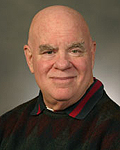 |
Jay Siegel, Ph.D.
Jay Siegel is professor and director of the Forensic and Investigative
Sciences Program at Indiana University-Purdue University Indianapolis.
He is a former director of the Forensic Science Program at Michigan
State University and former professor of chemistry at Metropolitan
State College in Denver. Siegel was a forensic chemist at the Virginia
Bureau of Forensic Sciences, where he analyzed illicit drugs and trace
evidence, and he has testified as an expert witness numerous times
in state, federal and military courts. He is a member of the National
Academy of Sciences committee on forensic science and a fellow with
the American Academy of Forensic Sciences where he received the Paul
Kirk Award for outstanding service to the criminalistics section and
the Distinguished Fellow Award. Siegel is a member of the American
Chemical Society, the Midwest Association of Forensic Scientists,
the Forensic Science Society (UK), and the International Association
for Identification, and he is an academic affiliate member of the
American Society of Crime Lab Directors. He is an active researcher
in forensic science, the principle investigator on a research grant
from the National Institute of Justice on ink analysis, the author
of two textbooks in forensic science and the editor-in-chief of the
Encyclopedia of Forensic Sciences. |
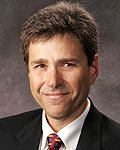 |
David A. Sklansky, J.D. David A. Sklansky is Professor of Law at the University of California, Berkeley, School of Law and Faculty Chair of the Berkeley Center for Criminal Justice. He teaches and writes about criminal law, criminal procedure, and evidence law. After graduating from Harvard Law School in 1984, Sklansky clerked for Judge Abner Mikva of the U.S. Court of Appeals for the D.C. Circuit and for U.S. Supreme Court Justice Harry Blackmun. He briefly practiced labor law at the Washington, D.C., firm of Bredhoff & Kaiser, and then, from 1987 to 1994, served as an assistant U.S. attorney in Los Angeles, where he specialized in white-collar fraud prosecutions. He joined the law faculty at UCLA in 1994 and moved to Berkeley in 2005. From 2007 to 2008, he was the John H. Watson Jr. Visiting Professor of Law at Harvard Law School. He is the author of an evidence casebook, Evidence: Cases, Commentary, and Problems, a monograph on democratic theory and law enforcement, Democracy and the Police, and many articles on criminal procedure. |
 |
Carrie Sperling, J.D. Carrie Sperling was named the first executive director of The Arizona Justice Project, housed at the Sandra Day O'Connor College of Law, in January 2008, and also is a visiting associate clinical professor at the College of Law. Sperling has more than a decade of experience in civil-rights litigation and post-conviction relief and is a former director of the ACLU's North Texas Region. Sperling was admitted to the Texas Bar in 1992 and began her career as an associate in the litigation section of the Fort Worth law firm of Shannon, Gracey, Ratliff & Miller. After leaving the ACLU, she began specializing in capital post-conviction relief and civil rights litigation. Sperling is a member of the Arizona Forensic Science Advisory Committee and its Subcommittee on Oversight, and previously was as an assistant professor at the University of Oklahoma College of Law. |
 |
William Thompson, J.D.,
Ph.D. William C. Thompson is Professor and Chair of the Department of Criminology, Law & Society at the University of California, Irvine. He has a Ph.D. in psychology from Stanford University and a J.D. from the University of California, Berkeley, School of Law. He studies the way people interpret (and sometimes misinterpret) scientific and statistical data and has also written extensively about the use and misuse of DNA evidence. Although primarily an academic, Thompson occasionally represents clients in cases involving novel scientific and statistical issues. He argued the first case on admissibility of DNA evidence before the Supreme Court of New Mexico and was a member of the “dream team” that represented O.J. Simpson during his criminal trial. He has consulted with police departments, coroners and lawyers on a variety of cases involving scientific evidence in the US, the UK, and Australia, and he discovered the DNA typing error that falsely incriminated a Houston man named Josiah Sutton. |
 |



